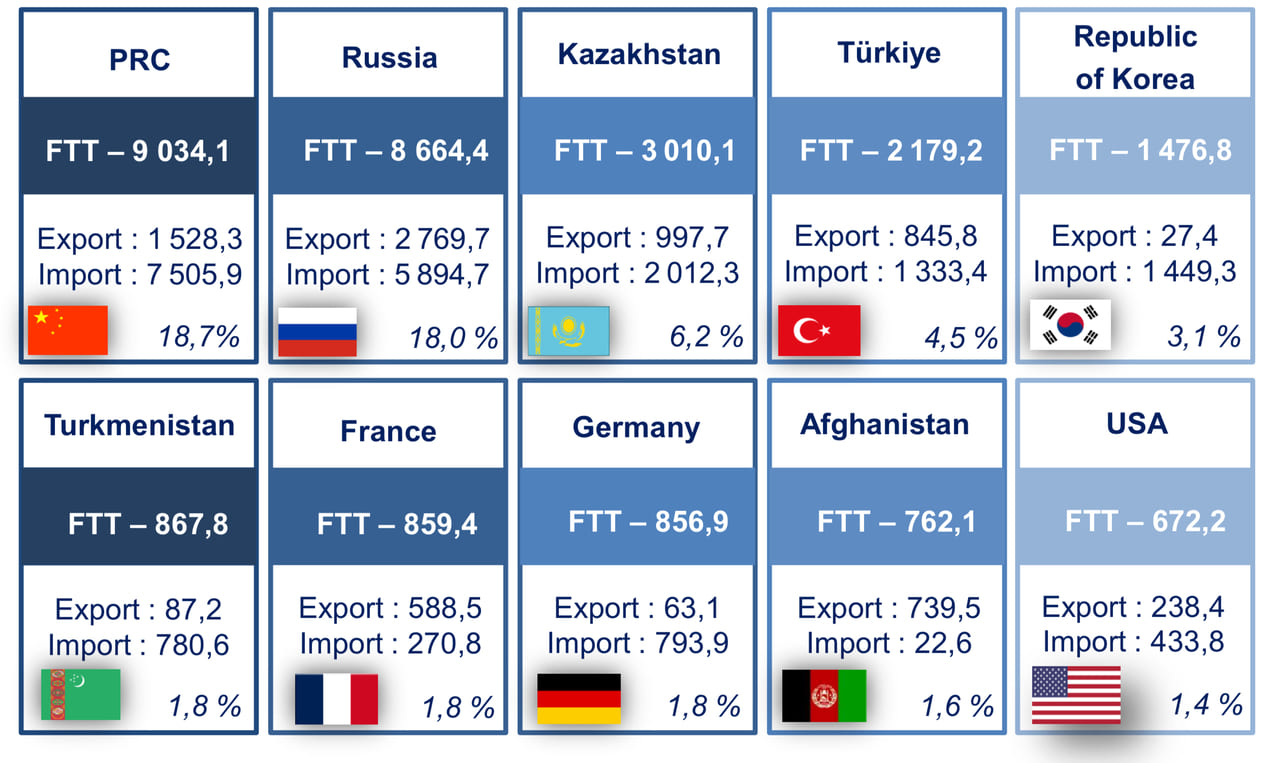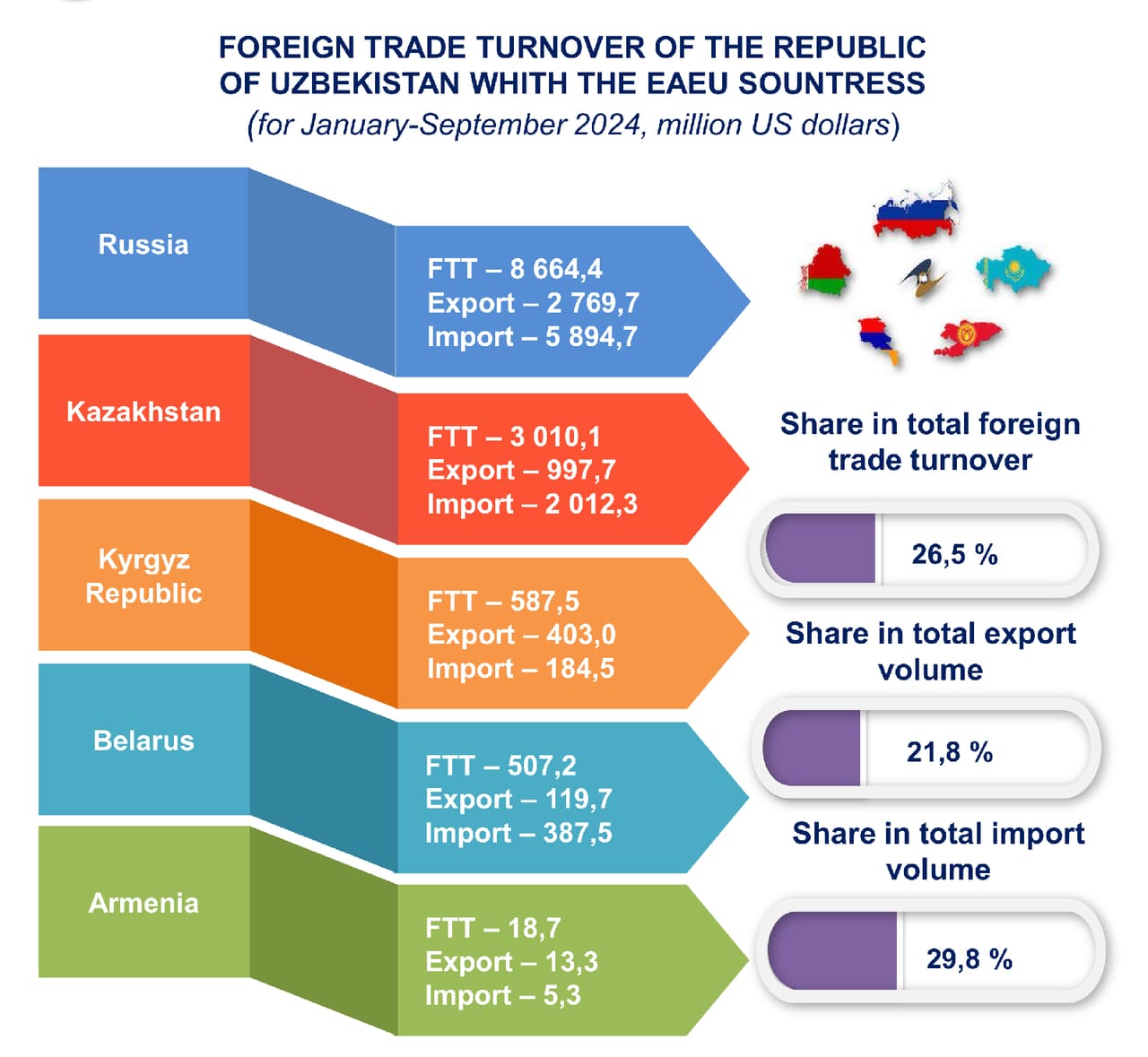Uzbekistan's foreign trade turnover reached $48.2bn from January to September 2024, marking an increase of $3.5bn (7.7%) compared to the same period in 2023. This growth reflects the effectiveness of ongoing economic reforms aimed at enhancing trade relations and increasing the country's export potential.

During this period, exports accounted for $19.77bn, showing a notable growth rate of 11.5% year-on-year. In contrast, imports totaled $28.43bn, an increase of 5.2%. Despite the positive trends in exports, Uzbekistan recorded a trade deficit of $8.66bn.
China remained Uzbekistan's largest trading partner, contributing 18.7% to the total turnover, followed closely by Russia (18.0%) and Kazakhstan (6.2%). The trade relationship with Kazakhstan has particularly strengthened, bolstered by geographic proximity, participation in the CIS free trade zone, and liberalization of economic ties.
In the first nine months of 2024, the share of foreign trade turnover with CIS countries increased by 1.5%, reaching $16.84bn. Russia accounted for 51.4% of this turnover, while Kazakhstan and Turkmenistan contributed 17.9% and 5.2%, respectively. Conversely, trade with non-CIS countries saw a decrease of 1.5%, totaling 65.1% of the overall foreign trade turnover.
The EAEU countries' trade volume also demonstrated growth, reaching $12.79bn, supported by the establishment of a common economic territory that facilitates the free movement of goods and services.

The agricultural sector has seen significant advancements, with exports of fruit and vegetable products totaling 1.5mn tons, an increase of 11.8% compared to 2023. This surge is attributed to government support aimed at improving product quality, with the export value reaching $1.05bn—an impressive growth rate of 25.8%. Key markets for these products include Russia (44.7%), Kazakhstan (14.1%), Pakistan (14.1%), and Afghanistan (7.3%).
In the light industry, textile exports amounted to $2.21bn, reflecting a 6.1% decrease from the previous year. The sector continues to pivot toward producing value-added goods instead of raw materials, underscoring ongoing reforms aimed at enhancing quality.
Service exports also contributed significantly to trade growth, reaching $5.01bn, which represents a 29.6% increase year-on-year. Travel services accounted for the largest share at 48.3% of total service exports.
Uzbekistan's total imports during this period reached $28.43bn, with machinery and transport equipment representing 35.5% of the total, followed by industrial goods (15.1%) and chemicals (12.2%). Additionally, service imports increased to $2.57bn, reflecting a growth of 42.2% compared to the same period in 2023.
Follow Daryo's official Instagram and Twitter pages to keep current on world news.
Comments (0)